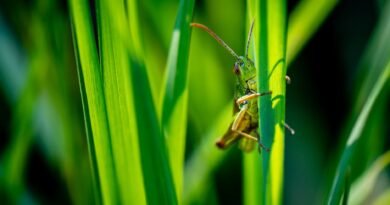GRASSHOPPER CHRONICLE
Grasshopper Chronicle Part II
Reef Knot: The knot for life
Jyotirmoy Prodhani
Our Scout note books were filled with so many things- pledge of the Boys Scout, duty of a boy scout, objective of a boy scout, determination of a boy scout and many other such great things. We would also draw the sketches of the knots, symbol of the Boys Scout, diagrams on how to use the sticks to set up a tent, make a stretcher and even construct a bridge. In every class we were taught something new. Meanwhile, we were taught how to parade like army men: ‘Left-right’, ‘kadam tal’, ‘sabdhan-bishram’. After the parade drills we would again sit in a circle and would learn new knots and other tricks of life.
One day Sir said, ‘Have you looked at the scout emblem with three petals? What does it signify?’
Many things came to our mind. Manish hazarded an answer with the air of a wise man. He said, ‘Sir it means Satyam Shivam Sunadaram.’
We thought it quite possible. It must mean something so grave and high sounding. Manoj quipped, ‘He must have copied this from that hit song, you know, sat-yam-shi-vam sun-da-ram.’
Sir said, ‘It implies the three promises a scout must fulfil every day- I must do my best, I must do my duty to God and my country and must help others. You must do at least three good things every day. You must report those three good things in the Scout classes.’
We felt like being nailed against the mango tree we were sitting under. To be dutiful to the country and God was simple- sing the national anthem and fold hands in front of the pictures of Gods and Goddesses. But to do three good things, good enough to report in public, was a tough call.
‘It can be anything’, Sir continued, ‘like helping a poor man, helping your friends, parents or even an animal. You must be mentally alert all the time to extend your helping hands whenever it is needed, such as helping a poor man with some eatables, assisting a blind man to cross the road, or an old man with his struggling to carry his stuff.’
We could never think of ourselves worthy of any good deed. It soon became an obsession to do three good things. All of a sudden the beggars disappeared, we never found a blind man standing on the edge of the road to cross over to the other side, nor even an old man struggling to carry a heavy bag. It was a desperate situation.
Once Nipen Sir asked Jogesh, ‘So tell us your three good things you have done today.’
Jogesh stood up, took ‘sabdhan’ position and began to fumble. Being asked once more he said, ‘Today in the morning I released a goat with its head stuck in the gap of the bamboo fencing, the fencing was around the patch we had cauliflower and cabbage.’
We giggled.
Sir said, ‘Yes, that was a very good thing that you have done. Bravo! In fact, it was a greater deed to help a dumb animal.’
Since that day, we were looking for a wretched goat with its head stuck in the bamboo fence. But despite hectic searches we found no such goat in such a disastrous condition. Jogesh was lucky. Subhash said, ‘I shall tell my father to cultivate to cauliflower and cabbage and put bamboo fencing around it.’
Manoj quipped, ‘See, three good things on a daily basis is not that easy. The other day before coming to school I had quickly touched the feet of my father. Instead of being happy he was shocked.’
“Which is the easiest then?’ Manish asked. Manish Agarwalla.
Manoj replied, ‘Duty to your country. Sing the national anthem and take part in the andolan and that’s about it.’
But then Scout session was great fun. We also learnt several songs including ‘We shall overcome, we shall overcome, we shall overcome some day”. That was the first English song we learnt and sang. Sir told us, ‘This is a great song and it was written by a great singer from America, Pete Seeger.’ We took down the name in our Scout note book along with the lyrics. He then taught us the Hindi version too, ‘Hum honge kamyab ek din’. We learnt many other songs including the Jyoti Sangeets like ‘Biswa bijayee najuwan’. The day’s session would always end with the national anthem- Jana gana mana. And that was the moment when tension would brew up, not because we did not know the song, but because we never had the inkling that there was a specific time within which we must finish the song.
Sir said, ‘You must not sing our national anthem just like that, neither you should sing so fast, nor too slow; it must be completed within at least fifty eight seconds, two seconds less than a minute.’ Once we heard this, the anthem became quite a difficult song to sing for us as we were always worried to finish it on time as mostly we seemed to be in a hurry to finish it. Now neither could we sing fast nor could we sing even for little beyond a minute. Sir would always monitor the time on his watch and comment, ‘Today it was little fast’ or ‘Today it was slow’. After the session Sir would often give some money to one of the seniors to buy stuff to eat. They would mostly bring hot singaras from Manik Dey’s tea shop, Mahamaya Mistanna Bhandar. We felt so grateful for the generosity of Sir. Manik Dey’s singaras were the most famous and the costliest, thirty paisa apiece, elsewhere it used to be just twenty five paisa. As we would relish our hot singaras, Sir would become little frank and begin to talk. This time he would mostly complain against our Headmaster. Though Scout was such an important thing, our Head Sir would not provide any facility. That despite several requests, the Head Sir would hardly bother to provide a thing to us Scouts which could have been easily managed from the school funds. Hearing all this from Nipen Sir, we felt so bad, felt like being the ignored and abandoned lot of the school. We felt, when NCC was getting so many things, there was nothing for us to pick up for free.
Just after the summer vacation in August, we were putting extra efforts in the scout classes. Sessions became longer and tougher. We put on our full dress for the drills as Sir was to select the Scouts who would take part in the Independence Day parade.

Jyotirmoy Prodhani
Professor, Dept of EnglishNEHU, Shillong




